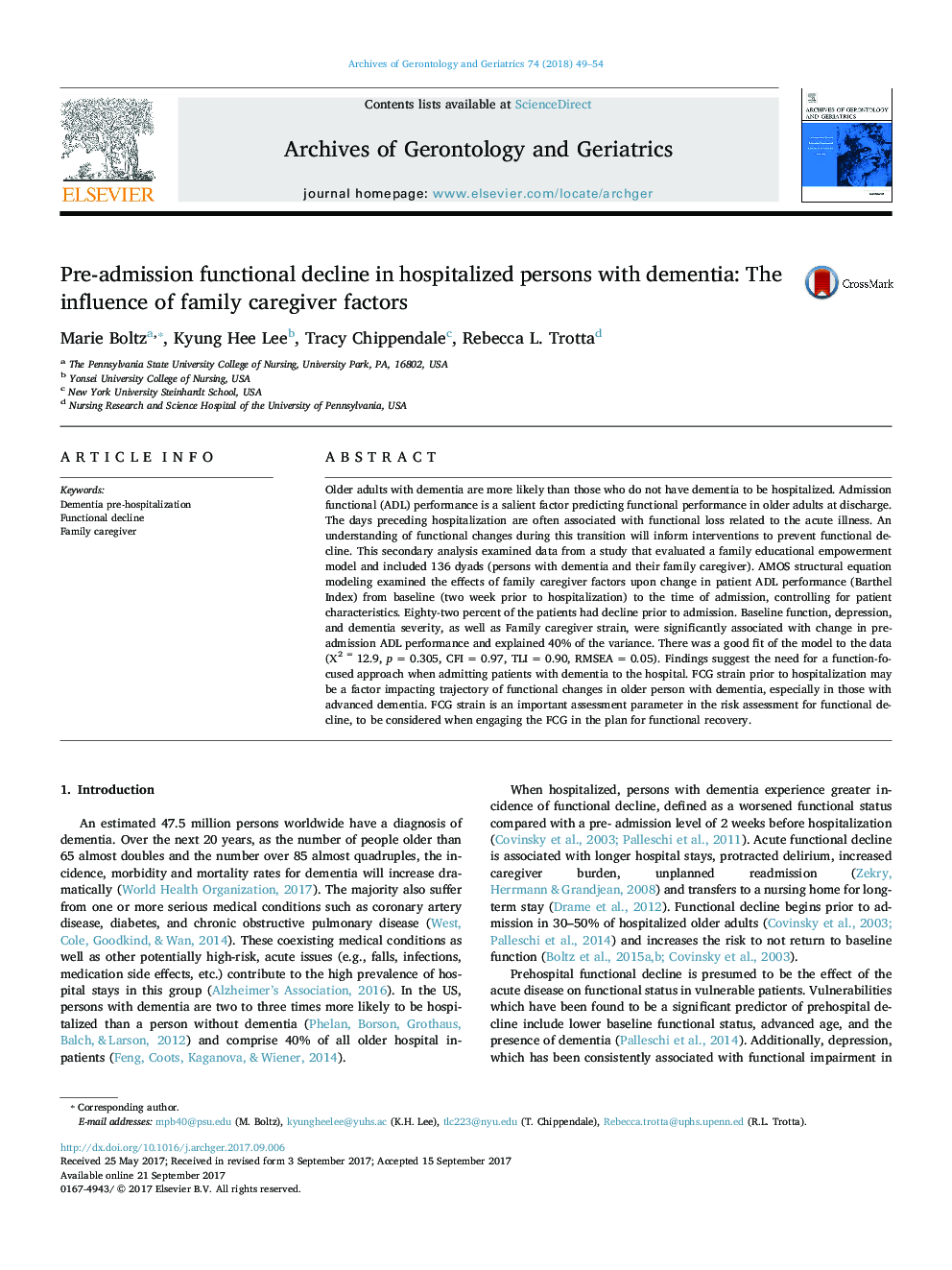| Article ID | Journal | Published Year | Pages | File Type |
|---|---|---|---|---|
| 5500748 | Archives of Gerontology and Geriatrics | 2018 | 6 Pages |
Abstract
Older adults with dementia are more likely than those who do not have dementia to be hospitalized. Admission functional (ADL) performance is a salient factor predicting functional performance in older adults at discharge. The days preceding hospitalization are often associated with functional loss related to the acute illness. An understanding of functional changes during this transition will inform interventions to prevent functional decline. This secondary analysis examined data from a study that evaluated a family educational empowerment model and included 136 dyads (persons with dementia and their family caregiver). AMOS structural equation modeling examined the effects of family caregiver factors upon change in patient ADL performance (Barthel Index) from baseline (two week prior to hospitalization) to the time of admission, controlling for patient characteristics. Eighty-two percent of the patients had decline prior to admission. Baseline function, depression, and dementia severity, as well as Family caregiver strain, were significantly associated with change in pre-admission ADL performance and explained 40% of the variance. There was a good fit of the model to the data (Χ2 = 12.9, p = 0.305, CFI = 0.97, TLI = 0.90, RMSEA = 0.05). Findings suggest the need for a function-focused approach when admitting patients with dementia to the hospital. FCG strain prior to hospitalization may be a factor impacting trajectory of functional changes in older person with dementia, especially in those with advanced dementia. FCG strain is an important assessment parameter in the risk assessment for functional decline, to be considered when engaging the FCG in the plan for functional recovery.
Keywords
Related Topics
Life Sciences
Biochemistry, Genetics and Molecular Biology
Ageing
Authors
Marie Boltz, Kyung Hee Lee, Tracy Chippendale, Rebecca L. Trotta,
